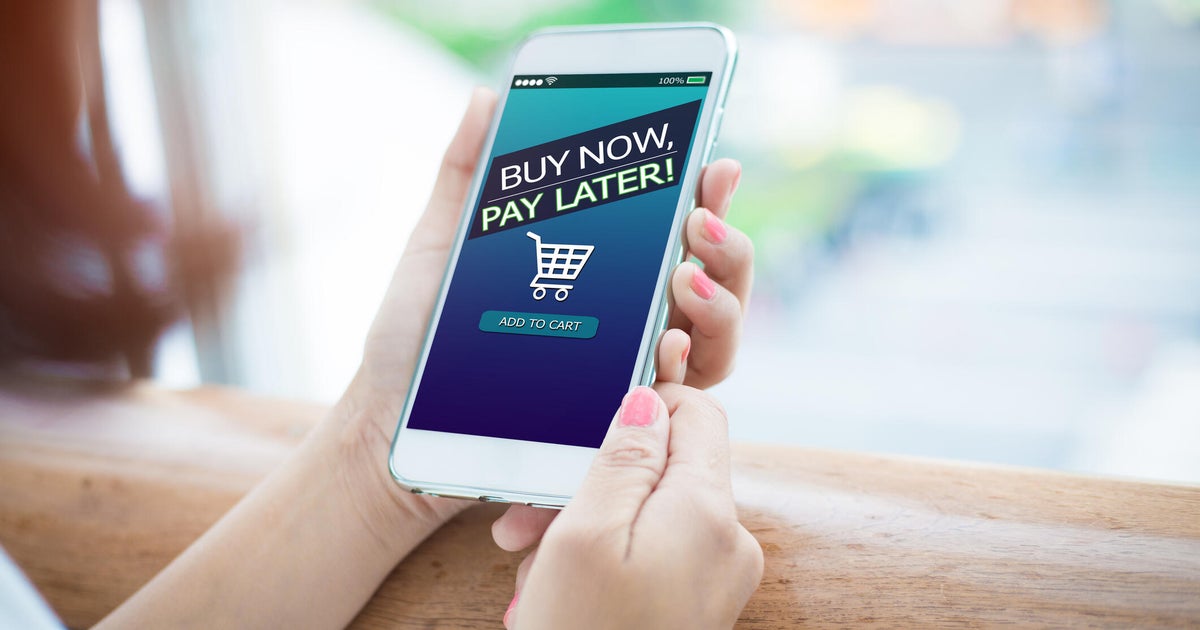

No response returned

In recent years, buy now, pay later (BNPL) services like Afterpay, Klarna, Affirm and others have exploded in popularity, especially among younger consumers. The appeal of this type of payment option is obvious: You can split up purchases into smaller, more manageable payments, , and check out instantly without the need for a traditional credit card. And, that low- or no-interest feature can be quite enticing, especially right now, as the can make those financing options extremely expensive.
While buy now, pay later plans might feel less risky than the alternatives, though, they still come with consequences if you fall behind. And as more people turn to these installment payment services to manage everyday expenses, from clothes and cosmetics to groceries and gas, . That, in turn, can cause big issues over time, as these types of plans are still financial obligations that need to be repaid, and they can have and other charges tied to them.
So, what happens when your BNPL payments spiral out of control? Can that debt be sold to a collection agency ? And if so, what can you do about it? Below, we'll break down everything to know.
.
Most buy now, pay later debt can be sold to debt collectors if it goes unpaid for long enough. While each BNPL company has its own policies, many will attempt to collect the debt in-house for a period after you miss a payment. If those attempts fail, they may either outsource the collection process to a third-party agency or sell the debt outright to a collector.
This might come as a surprise to some users, especially because many buy now, pay later services market themselves as interest-free or low-risk. But just like credit card companies or traditional lenders, BNPL providers are in the business of getting paid. When you agree to a buy now, pay later plan, you're entering a legally binding contract, and defaulting on that agreement has real consequences. Here's how it usually plays out:
It's also worth noting that some buy now, pay later providers, particularly those that conduct soft or hard credit checks to approve you, already report your payment history to credit bureaus. So on your credit file even before your debt is sold to collections.
.
If your buy now, pay later debt has been sent to collections, don't ignore the issue. The longer a collection account lingers, the more damage it can do to your credit and financial stability. Here are some steps you can take to deal with it:
Verify the debt. Always from the collection agency. This should outline how much you owe, who the original creditor is and your rights as a consumer. Never pay a debt until you've confirmed it's legitimate.
Understand your rights. Under the Fair Debt Collection Practices Act (FDCPA), . They can't harass you, lie about what you owe or threaten you with legal action they don't intend to take. You also have if you believe there's an error.
Negotiate a settlement or payment plan. Many debt collectors are open to than the full balance, especially for BNPL debts, which are often lower in dollar amount than traditional loans. You can also ask to break the balance into smaller monthly payments if a lump sum isn't feasible.
Explore debt relief options. If your buy now, pay later debt is just one piece of a larger debt problem, it may be time to consider , like:
Buy now, pay later plans might seem like a low-stakes way to shop, but they come with real financial obligations. If you fall behind, your debt can be sent to collections, just like any other form of credit. And once that happens, it can damage your credit and trigger aggressive collection efforts.
If you're already in that situation, don't wait to take action. Verify the debt, understand your rights and explore the right resolution strategy for your financial situation. Whether it's negotiating a payoff, seeking help from a credit counselor or considering more formal debt relief, the sooner you act, the better chance you have of getting back on track.




